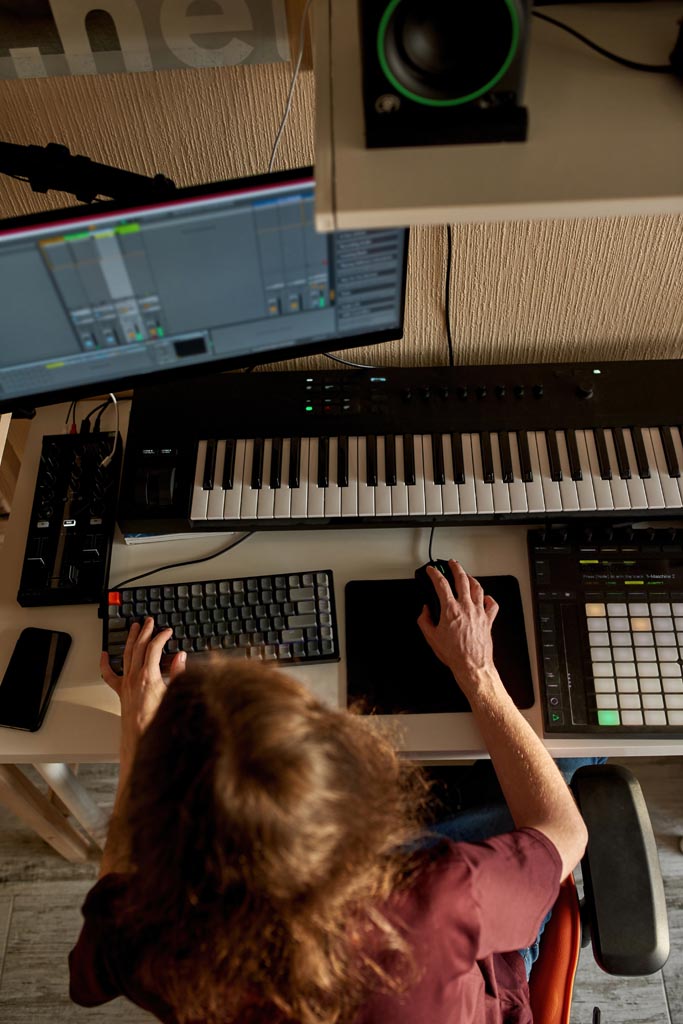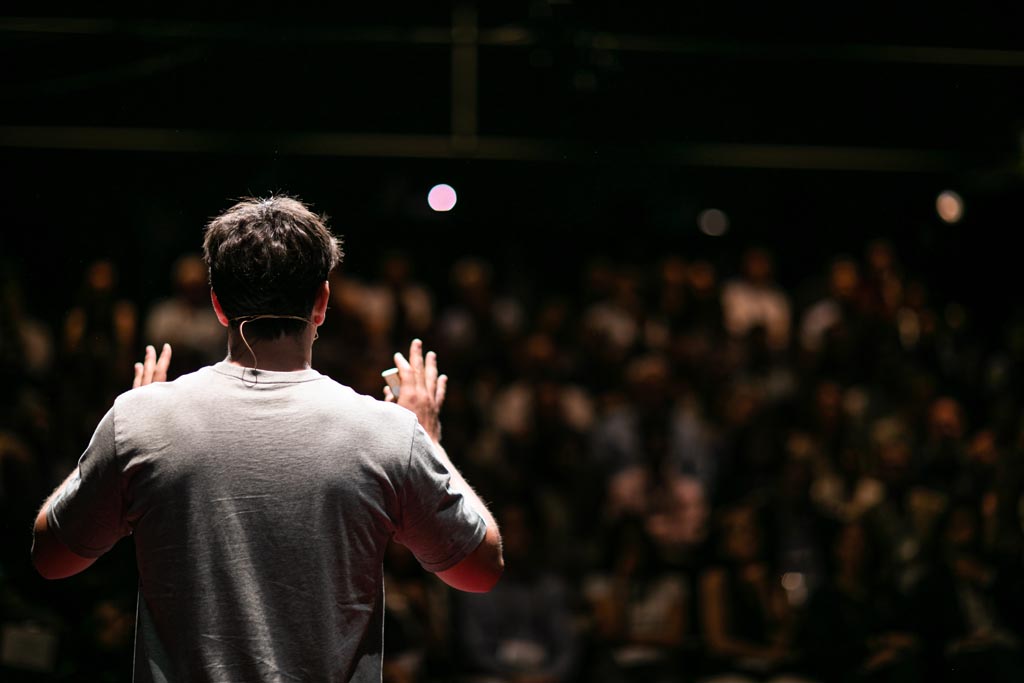CORPORATE
18 Jul 2023
The Corporate Landscape Moving Forward

Subscribe to CX E-News
Like much of the wider industry, corporate events were almost completely shut down over the COVID period. Restrictions and uncertainty made the idea of putting on an event back then seem far too risky, much less profitable, or fun. And as we all know, much of 2020 was a total write-off.
The Corporate World Post-Lockdown
When corporate gigs finally started up again, they came back slower than many had anticipated. We didn’t really have that sudden influx of bookings or people wanting to do gigs as soon as capacity restrictions lifted and venues reopened, that many of us had hoped for. Resumption of play returned at a slow trickle, despite the optimism surrounding the relaxation of restrictions.
And even when the gigs finally returned, they were only ever really ‘pencilled in’. We constantly saw gigs scrapped last-minute, pushed back, or moved because so-and-so got sick or was in the orbit of someone who later fell ill. A lot of gigs were postponed, and postponed again, and interstate gigs were rare, as people needed to self-isolate before being allowed to mingle with others. Many of us had full calendars of these ‘pencilled in’ dates.
For a while there we endured the ever-present anxiety of feeling like a gig could be cancelled any time, without notice. All it would take was one person getting sick (or testing positive), or being near someone who was sick, and a whole event would be cancelled. There seemed to be a lot of angst surrounding events; a general feeling of despondency and a lack of motivation mostly because nothing ever seemed to be a ‘sure thing’.
When, despite all the hurdles, some gigs did go ahead, and apologies for reminding everyone of this, social distancing and other measures were enforced. We had the dreaded times when you weren’t allowed to have singing or dancing or people mingling, which basically defeated the purpose of having events in the first place, it seemed.
We also had supply chain issues, which created innumerable logistical headaches around everything from moving people and equipment, to buying electrical tape. By themselves, these challenges were enough to completely change, or sometimes even cancel, events.
Like the wider industry, COVID rules and restrictions had a severe impact on corporate events.

Challenges Facing Corporate Gigs Today
But while we’re now unofficially out of the ‘post- lockdown’ period and things have (more or less) returned to normal, we’re still feeling the after-effects of the whole sorry saga. Arguably the biggest challenge facing corporate gigs today is finding crew, especially experienced technicians who are often booked months in advance. A significant number of these people left the industry over the COVID period or since the re-emergence of activities. Many retired or semi-retired, while others found employment elsewhere, which has resulted in a significant skills shortage that very few anticipated, where there’s now more work than there are workers! This situation likely won’t change anytime soon until we can train up new staff.
Moreover, the skill and labour shortages go well beyond finding good technical crew for corporate gigs. Our clients, suppliers, couriers, caterers and almost everyone else with whom we come in contact, are in the same boat.
Gigs where there’s too much to do, too many unknowns, or unsavoury hours are getting put into the ‘too hard’ basket rather than being seen as a challenge to tackle. This ‘prioritising’ is so commonplace now that it’s changing the way people approach gig planning and booking. This may eventually be for the better, of course, as it could drive innovation and new thinking around how we deliver events.
In fact, it’s happening now. More effort is already being made to streamline processes, simplify gigs and put better systems in place, although nowadays this seems to be borne out of necessity rather than preference.
Streaming, Zoom call-ins and hybrid gigs have become the norm, not the exception. In the post-lockdown world, it was imperative that every corporate gig had this setup due to social distancing and capacity limits. While it’s not quite so crucial these days, it’s still much more commonplace than it was pre-lockdown. These unexpected changes have brought with them new equipment requirements, new skills to learn, and of course a whole new set of challenges.

Problems Facing Corporates Moving Forward
With a potential economic downturn on the horizon, coupled with rising interest rates and severe cost of living issues, businesses are reconsidering their spending patterns and priorities. In the foreseeable future, a downturn would likely mean less gigs and more scaled- back events, and while it may still be true that some corporate gigs can be used largely as tax write-offs by end-client companies, they still must have money to invest to begin with.
Crew shortages are not likely to go away anytime soon, either. The problem has already started to push up wages, and the law of supply and demand would seem to indicate that it’s inevitable and set to continue. Couple this fact with the needs of companies to cut material costs wherever they can, labour is fast becoming their biggest expense.
The only way crew numbers will improve in future is by an influx of new faces, and now seems like the perfect time for new people to enter the industry. Crew training and development will be a big part of future planning; those who can build an adequate training and support network into their business model will have more quality assets at their disposal. Moreover, companies that can hold onto loyal, experienced crew will be far more likely to prosper moving forward.
Prior to COVID, large corporate events with big budgets and big expectations were awash throughout the country, but for all the obvious reasons, those days haven’t come roaring back, nor are they likely to in the foreseeable future. The higher paying jobs seem to be moving more towards TV, film and movie work, as evidenced by the large investments currently being made in sound stages, film studios and other broadcast equipment.
This will only serve to compound the labour problems facing corporate companies and venues.
While streamlining and cost-cutting measures might make sense to get gigs over the line today, these methods will affect how we stage gigs into the future. They will come at the expense of quality, versatility, creativity, and events being adaptable on-the-fly.
Remote working could also significantly impact the industry. For a while now, people have done a lot of pre-production work at home, or in remote locations, but now we’re starting to see people operate whole events from remote locations. This could be a trend that has the potential to permeate the whole industry; on the upside, opening up the labour market to corporates in ways no-one had foreseen, although this too won’t be without its hurdles and challenges.
The future of corporate events will inevitably be shaped by the conditions it faces. With current labour shortages and a future economic outlook that’s more than a little shaky, we could be looking at a more streamlined, less extravagant, more value-driven approach to corporate events over the short term.
Subscribe
Published monthly since 1991, our famous AV industry magazine is free for download or pay for print. Subscribers also receive CX News, our free weekly email with the latest industry news and jobs.






